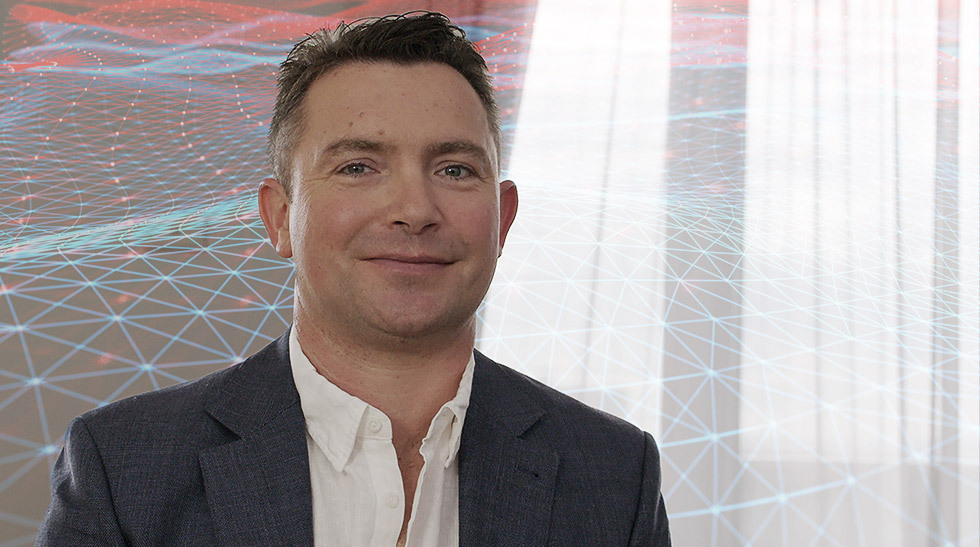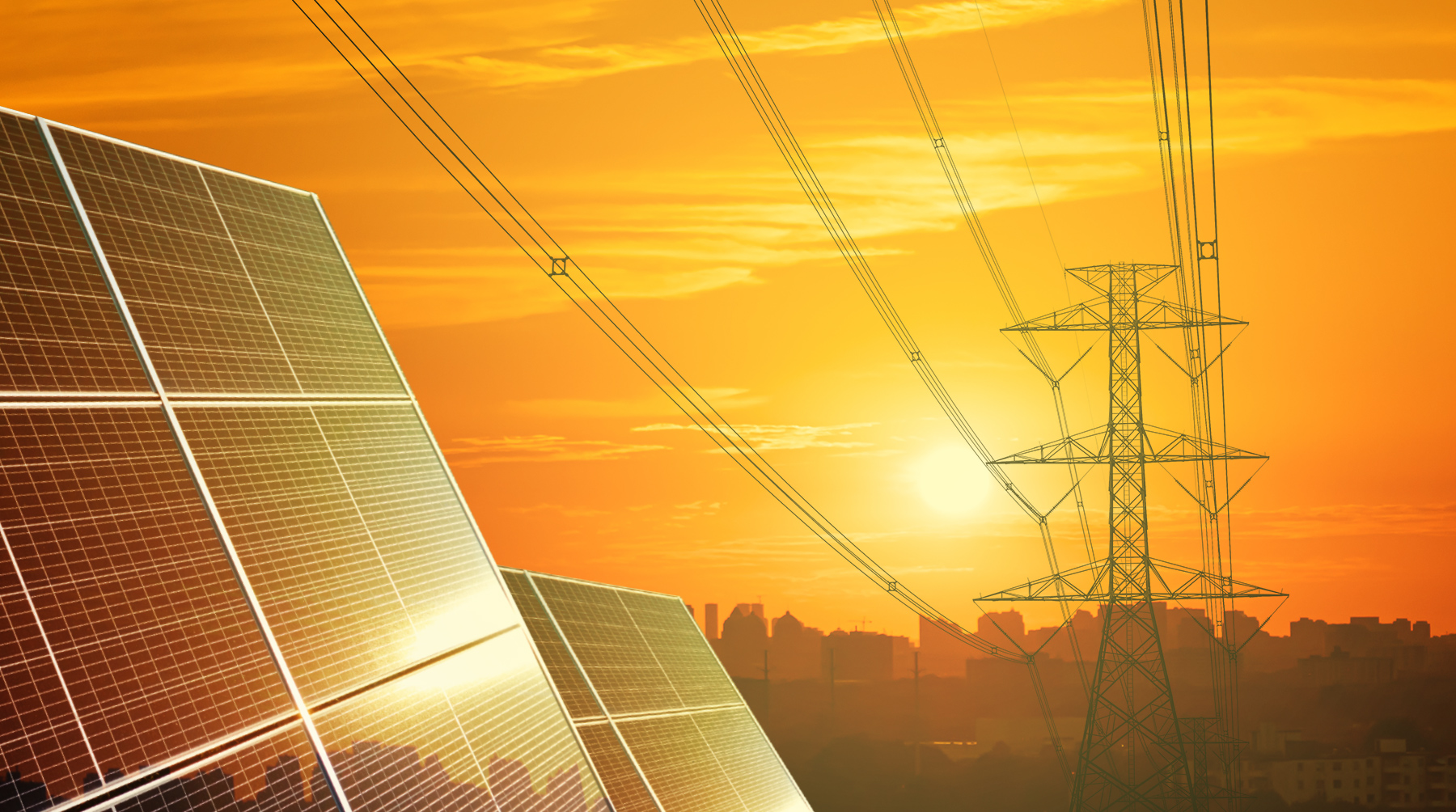Interview with Ben Hutt, CEO and MD, Evergen
It’s been a big year in renewable energy. What’s been happening?
It’s been a huge year for renewables with climate change being top of mind. COP26 was a massive focal point for lots of people around the world. From an Australian perspective, it was very disappointing to see our current government fail to accelerate commitment and now we’re seeing the Labor Party begin to campaign around a net zero by 2030 goal, which is great. It’s nice to see some potential action at home.
Globally, there was nowhere near enough commitment made at COP26 for us to feel comfortable that we’re going to stay within the temperature range that we need to. So from a personal point of view, I’m concerned.
On the bright side, the US has begun to move. They’ve recently passed a really good infrastructure bill, which signals that there’ll be lots of investment and massive things happening around the world, funding in renewables. You never know, but I would’ve hoped that more could have been done by now.
How has Evergen been helping?
We’ve been working not just across Australia with retailers and the networks, but globally. In Australia, we’re now managing more than 6,000 consumer and business batteries, working with six major retailers and a bunch of networks to really drive value from distributed energy resources. We’re working with home builders and state governments around initiatives that involve electrifying homes with advanced demand response, pre cooling with air conditioning and many other things that are moving us in the right direction. Overseas, we’ve been working in Belgium and with Chilean utilities which has led to exploring strong opportunities in other parts of Latin America. We’ve also been dealing with some things that will potentially lead to us spending time and energy in the US next year.
From an Australian software point of view, the innovation that we’ve created here, the lessons learned, the complicated market dynamics, have allowed us to learn and develop software products that customers around the world are valuing. I feel like, ironically, Australian businesses like Evergen are making a great contribution to people wanting to start decarbonising the energy system elsewhere in the world, but these things are still in their infancy and kind of sub-scale.
We are very positive on the uptake of renewables at a consumer level, we’ve got record penetration of rooftop solar. People keep putting more solar on the houses, which is great. But there’s been a drop in massive scale investment because of a lack of clarity around regulations in Australia and therefore the cost of capital has gone up compared to other countries. We’ve seen this lead to the exit of some pretty major renewable developers in Australia, people focusing on smaller scale things to kind of avoid or navigate some of the regulations.
We are seeing mass ‘turning off’ of solar resources during the day, because the network can’t handle the drop in voltage and from my point of view, that makes me sad because it means those electrons that are being created are not being used or stored. It’s being wasted because the infrastructure can’t cope. I’m an advocate for storage, so I think instead of just turning these things off, there should be incentive programs around batteries, either in the community where they can soak up solar from a number of properties or in homes, which we’ve seen work really well around the country.
The intentions of the AER and AEMO are good, and there have been a few wins in the regulatory perspective with AEMO around things like; changes to the VPP program and FCAS rules. We are seeing innovation in business models from networks, very slowly with changes in the rules from AER, but we’re not always concerning ourselves with how to make the best use of all of the energy that’s created. It’s more about how we keep the lights on, which I understand is the primary objective, but we shouldn’t be wasting electrons that are created through green power.
What else is happening around the space?
In other news, we have seen quite a lot of talk around early retirement of qualified assets. We’ve seen major utilities, such as EA, Neoen and AGL commit to massive storage projects and pumped hydro projects, which is great. This shows the investment is starting to happen on the right side of the green equation. In the utilities we work with, we’re seeing lots of initiatives around financing of assets in homes and businesses, which is great and again, shows that the major utilities have got confidence in the economics of owning storage and other assets in people’s homes.
I still think, unfortunately, what we need as a country is political leadership around aggressive decarbonisation targets to drive the volume of investment that we need. Mike Cannon-Brooks and the gang have done a great job, Twiggy Forrest has done a great job, there’s a lot of jaw boning and big statements being made, but as a nation if we want to either export our knowhow or import the vast amounts of capital sitting around the world to invest in projects like this, we need a 10 year regulatory and policy framework that’s bipartisan and provides clarity on return on investment that people can expect.
What have been some of the big challenges?
There’s still no national clarity. There’s still national subsidies, state governments have failed to roll out incentive structures at scale, pretty much the same as last year. Common problems around the world.
It’s really interesting, the regulatory framework for electricity is changing around the world as is the political landscape. In some of the regions that we work in, Latin America for instance, we’re seeing governments change or need to change to enable the right policies for energy and new markets. We’re seeing competition being encouraged into some markets and we are really on a two to three year journey of change in parts of Europe. They’re maybe 12 to 18 months away from knowing what the business model is around storage, new energy investments and distributed energy.
I think what’s clear is that things are changing the world over, with some areas changing faster than others. As an example, we’ve done some work recently in India which is the world’s most popular developing economy with a massive push on electrification of transport, but infrastructure, network infrastructure is way behind. It’s interesting that some of the technologies we take for granted in places like Australia, such as lithium ion batteries and the internet, are just not available or affordable at scale in countries like India. There’s some real challenges around affordability of making the right investment and this could lead, in that case, to lead acid batteries being continually deployed at scale, which frankly, I think from an environmental perspective is a shocking thing to do, but ultimately economics and commercial incentives drive behavior where the government is unable to step in.
How can people help?
I think as individuals and families, we need to make conscious decisions every day. We need to choose where we buy our food, like is it mass farmed, is it conscious? Are we thinking about where we buy our energy, where was it generated? Increasingly now we’re being able to trace where energy was generated.
In Evergen’s case, we’re actually controlling a bunch of solar farms and working with the retailer that is buying that energy and selling that energy. We’re pretty confident that the whole supply chain is green. There’s a lot of green-washing that happens in energy and buying carbon credits simply isn’t good enough, the providence of it should be known and it should be healthy. We have a voice and you can choose where you spend your money.
Increasingly there are focuses on renewable energy, the whole sourcing, delivery, but ultimately energy efficiency is still a thing, turning your lights off is a thing. Just make small choices and talk to people about the decisions that they make.
Tell us about what the WEC Humanising Energy series meant to you?
One of the highlights for Evergen this year was that we worked with the BBC StoryWorks team on a series for the World Energy Council around humanising energy. It was a collection of 20 global stories about businesses or communities making really positive efforts to address climate change and Evergen was very privileged to be part of that. It’s opened up some really interesting conversations for us.
We’ve had several million people around the world watch the film, which is great and has certainly led to some interesting conversations in new markets for Evergen. From a personal point of view, I was very proud of that piece of content because I feel it reflects what we’re trying to do at Evergen, how we’re trying to do it and how we feel the world needs to think about making change. It really should be focused on the impact we have and the legacy we can leave for the next generation, because if our generation doesn’t do as much as we can, it’s going to be a hopeless crusade for the generation that follows.
Looking forward, what steps do we need to take today?
In Australia there is a complete lack of leadership on climate change at a federal level, which is what’s really required to create conditions of clarity and commitment to take the right path forward. Targeting “net zero by 2050” whilst simultaneously considering a set of market regulations that will unnecessarily subsidise the coal fired electricity generation base is ridiculous. There are alternative solutions that would be much quicker and less expensive to deploy and would support the flexibility required to rapidly transition to a renewables powered energy system. We need to follow countries like the UK (bi-partisan/cross-bench commitment) with aggressive deadlines (e.g. electrification of transport) or Germany – similar 10 year “not optional plan”. Commitment and clarity and urgency is required.
What will the ‘new energy’ world look like in the next 50-100 years?
Around the world different market challenges exist but in an environment where there is ample sun, wind, and other renewable sources of energy, if we connect all the resources together (whether with physical infrastructure or digital infrastructure), it’s possible to rapidly decarbonise the energy system and prepare for the increases of energy we require in the new world.



